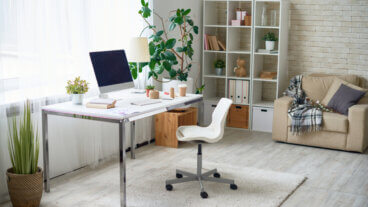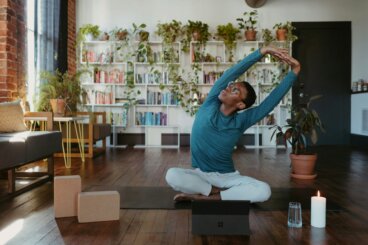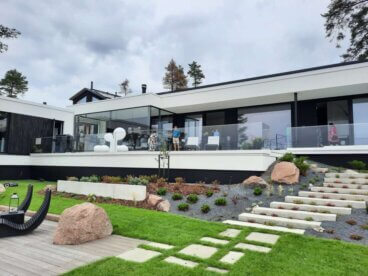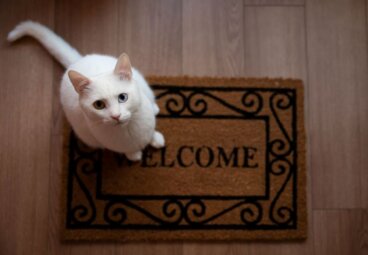The Impact of Color on an Office
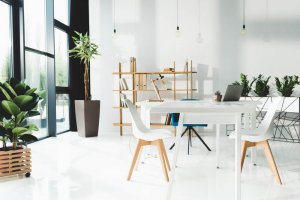
Before settling on a color for your office, you should first analyze your color options to make sure that they won’t overwhelm or create an uncomfortable office space.
Apart from personal and overall criteria, there are certain colors that encourage a working atmosphere, making them ideal for furniture or details.
From a psychological perspective, using different colors in your office decor is very beneficial. Color palettes are also key to marketing.
How does color impact an office?
Let’s take a look at what colors can transmit in order to understand how they work in our work environment.
Colors in an office
Remember that there’s no magical formula for choosing the best colors for each piece of furniture; the right color depends on personality, age, sex, climate, and ethnicity. But we do have some tips for using color to its full potential.
Two neutral colors
Gray
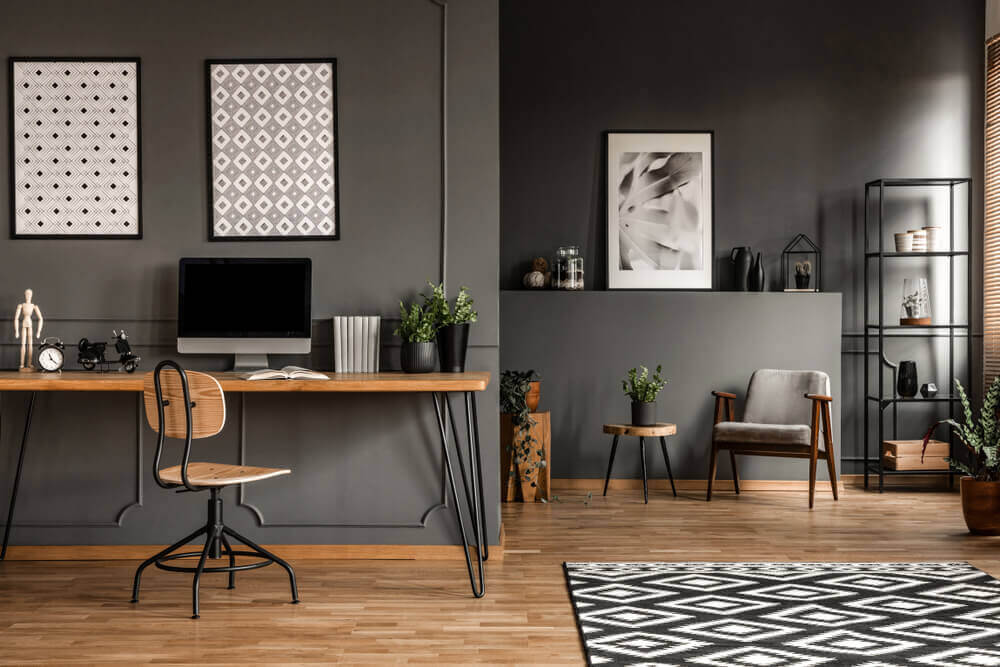
Light gray is a great color for office furniture because it matches almost any other color.
Another reason why it’s a great choice is that it doesn’t visually overwhelm nor does it clash with other colors. At the same time, it creates bright spaces. Light gray is a classic neutral, mid-tone color that most people like.
But you shouldn’t use it by itself. Instead, use it as a base and add in other colors. Light gray looks great with strong colors like red or blue. In addition, it can also create lovely atmospheres alongside pastel colors.
Dark gray can give an office distinction. Use it in the pieces like chairs and stools in the office decor for executives and meeting rooms.
Beige
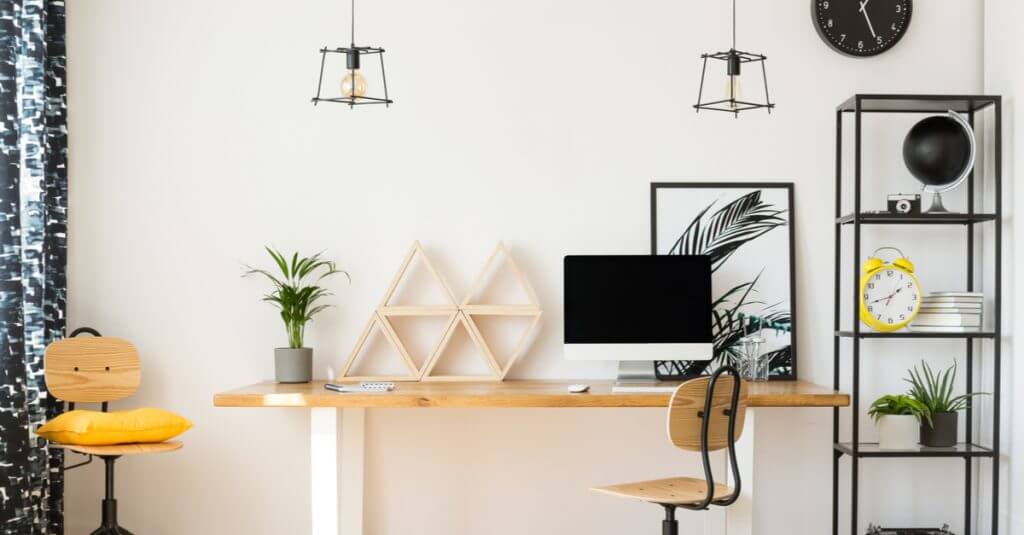
Beige is another great base color. Aside from other aesthetic benefits, beige is a neutral color that won’t overwhelm.
While it doesn’t provoke any mood changes, it can be helpful in cases of physical or mental hyperactivity. Beige is a color that can aid unorganized minds as it helps them hang on to their ideas.
But you shouldn’t use it by itself. Keep in mind that alongside beige, other colors have a stronger impact, which can have very positive emotional and visual results.
A non-color
Black
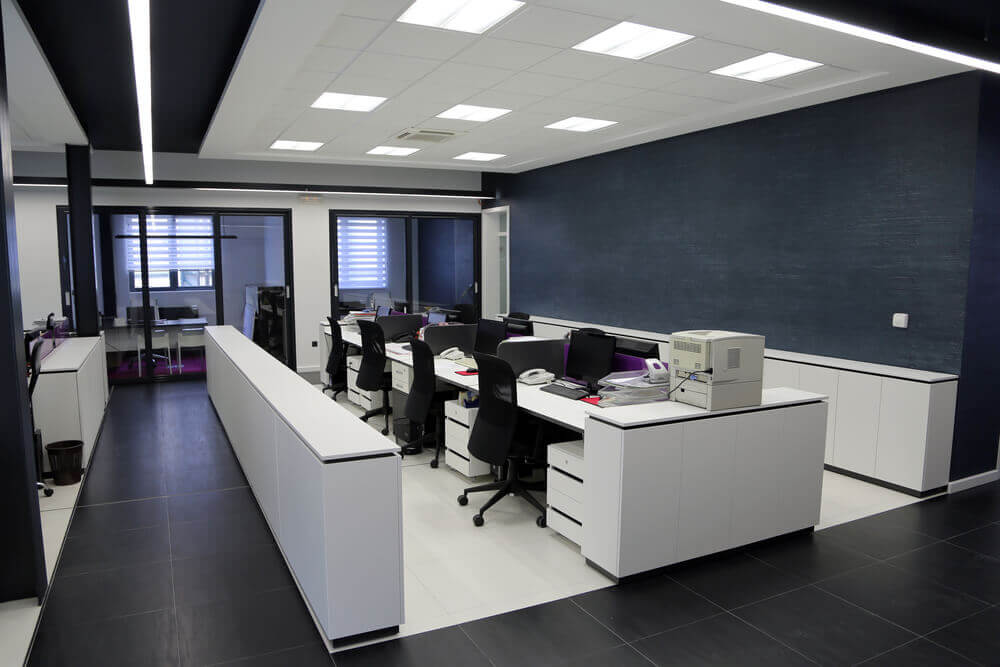
Black works well with dark gray or wood in addition to stronger colors for chairs, such as purple, red and blue. It can give an office an elegant decor while creating warm spaces. Black is the best tool to use against cold spaces.
Two warm colors
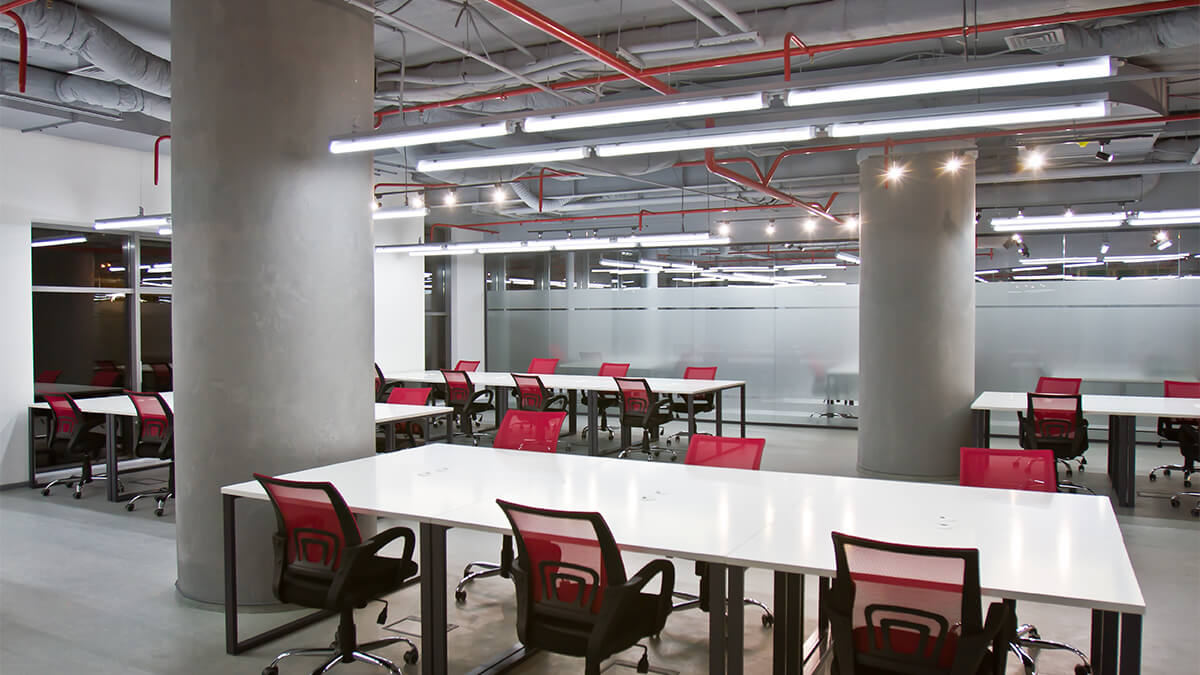
Red gives off energy; thus, it’s a great choice for an office. However, too much red can provoke less than desirable psychological effects.
Red works especially well not as the main office color, but in certain pieces of furniture such as chairs. You can use it to create warm, visually sharp settings. We also want to add that red looks great with gray and beige.
Yellow
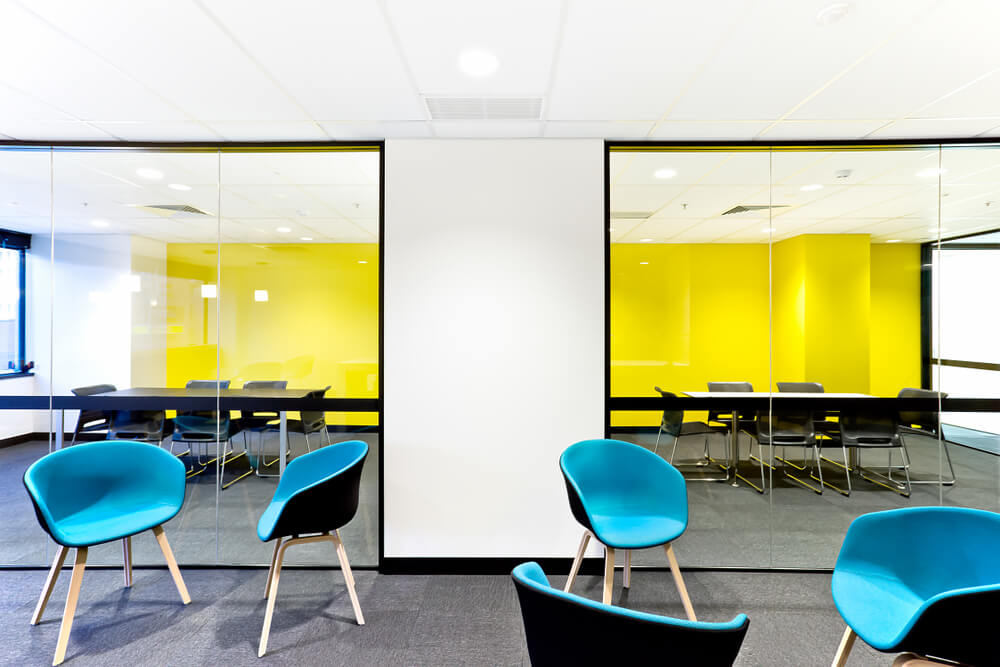
When used in the right amounts, yellow can be a great color for any office setting. It boosts intelligence, wisdom, and creativity.
However, yellow can overwhelm. Consequently, you should only use light or warm shades of yellow in your office decor. From a visual standpoint, yellow creates happy, young and bright spaces.
A cool color
Blue
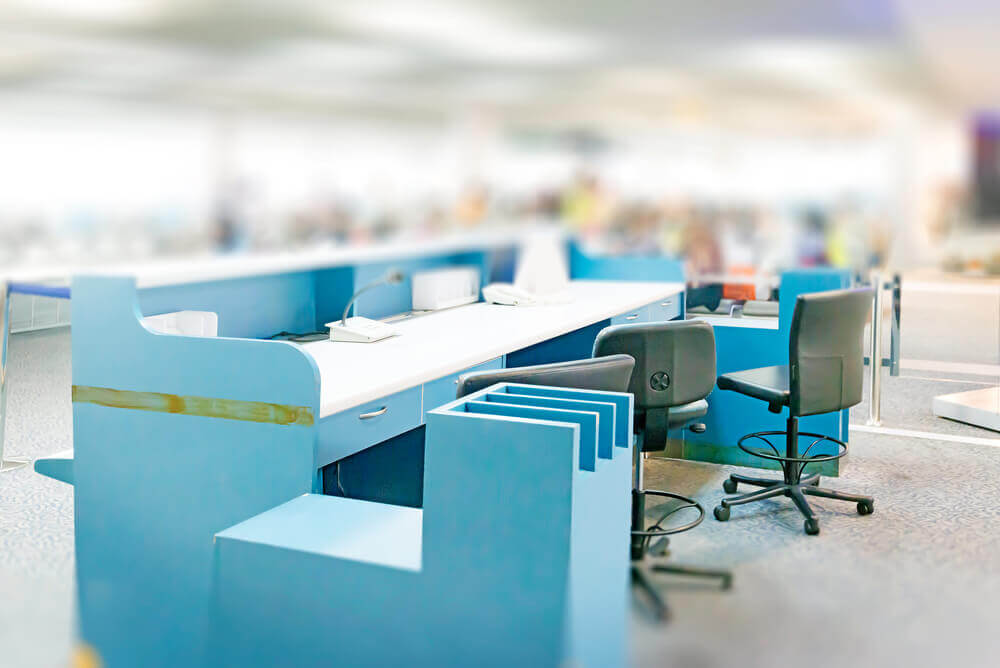
All shades of blue work great for office furniture. Blue works exceptionally well with beige and light gray, but it can also match other stronger colors beautifully.
You can use blue for more than just your chairs: drawers, file cabinets, table legs…
Consider blue if your office boasts plenty of natural light because it will play with the blue tones to create a wide-open feel.
Blue calms anyone in its presence down. It reduces tensions and gives off positive vibes. On top of that, almost everyone likes blue. Studies have also shown that using blue space or cubicle dividers boosts productivity.
We hope our post helps you go back to work with a more positive mindset! Change up your office colors for a mental boost.
Before settling on a color for your office, you should first analyze your color options to make sure that they won’t overwhelm or create an uncomfortable office space.
Apart from personal and overall criteria, there are certain colors that encourage a working atmosphere, making them ideal for furniture or details.
From a psychological perspective, using different colors in your office decor is very beneficial. Color palettes are also key to marketing.
How does color impact an office?
Let’s take a look at what colors can transmit in order to understand how they work in our work environment.
Colors in an office
Remember that there’s no magical formula for choosing the best colors for each piece of furniture; the right color depends on personality, age, sex, climate, and ethnicity. But we do have some tips for using color to its full potential.
Two neutral colors
Gray

Light gray is a great color for office furniture because it matches almost any other color.
Another reason why it’s a great choice is that it doesn’t visually overwhelm nor does it clash with other colors. At the same time, it creates bright spaces. Light gray is a classic neutral, mid-tone color that most people like.
But you shouldn’t use it by itself. Instead, use it as a base and add in other colors. Light gray looks great with strong colors like red or blue. In addition, it can also create lovely atmospheres alongside pastel colors.
Dark gray can give an office distinction. Use it in the pieces like chairs and stools in the office decor for executives and meeting rooms.
Beige

Beige is another great base color. Aside from other aesthetic benefits, beige is a neutral color that won’t overwhelm.
While it doesn’t provoke any mood changes, it can be helpful in cases of physical or mental hyperactivity. Beige is a color that can aid unorganized minds as it helps them hang on to their ideas.
But you shouldn’t use it by itself. Keep in mind that alongside beige, other colors have a stronger impact, which can have very positive emotional and visual results.
A non-color
Black

Black works well with dark gray or wood in addition to stronger colors for chairs, such as purple, red and blue. It can give an office an elegant decor while creating warm spaces. Black is the best tool to use against cold spaces.
Two warm colors

Red gives off energy; thus, it’s a great choice for an office. However, too much red can provoke less than desirable psychological effects.
Red works especially well not as the main office color, but in certain pieces of furniture such as chairs. You can use it to create warm, visually sharp settings. We also want to add that red looks great with gray and beige.
Yellow

When used in the right amounts, yellow can be a great color for any office setting. It boosts intelligence, wisdom, and creativity.
However, yellow can overwhelm. Consequently, you should only use light or warm shades of yellow in your office decor. From a visual standpoint, yellow creates happy, young and bright spaces.
A cool color
Blue

All shades of blue work great for office furniture. Blue works exceptionally well with beige and light gray, but it can also match other stronger colors beautifully.
You can use blue for more than just your chairs: drawers, file cabinets, table legs…
Consider blue if your office boasts plenty of natural light because it will play with the blue tones to create a wide-open feel.
Blue calms anyone in its presence down. It reduces tensions and gives off positive vibes. On top of that, almost everyone likes blue. Studies have also shown that using blue space or cubicle dividers boosts productivity.
We hope our post helps you go back to work with a more positive mindset! Change up your office colors for a mental boost.
